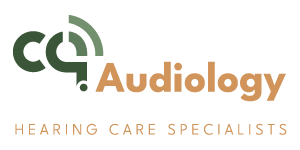Contact Us
We would love to speak with you.
Feel free to reach out using the below details.
Visit our main clinic
- T33 & 34A, City Centre Plaza, 24 Fitzroy Street, Rockhampton, QLD 4700
Get In Touch
- (07) 4848 6528
- reception@cqaudiology.com.au
Hours
- Mon-Fri 9:00AM - 5:00PM
- Sat 9:00AM - 12:00PM
Get a callback
Fill out the form below and we will contact you as soon as possible!
CQ Audiology Visiting Sites
BARCALDINE
Barcaldine 60 & Better Program
13 Willow Street
QLD 4725
BILOELA
Ace Medical Centre
48 Grevillea Street
QLD 4715
BLACKALL
Blackall Hospital
189 Landsborough Highway
QLD 4472
BLACKWATER
North Blackwater General Practice
14 Blain Street
QLD 4717
EMERALD
Lot 1 Pilot Farm Road
QLD 4720
MOUNT MORGAN
41 Morgan Strreet
QLD 4714
ROCKHAMPON CITY
T 33 & 34A City Centre Plaza
24 Fitzroy Street
QLD 4700
TAMBO
Tambo Multi Purpose Centre
26 Arthur Street, Tambo Queensland 4478
LONGREACH
North & West Queensland Primary Health Sercvies
19 Duck Street, Longreach Queensland 4730
YEPPOON
Keppel Bay Medical Centre
Shopt 26, Keppel Bay Plaza
64-67 James Street
QLD 4703

Hearing Test Bajool
Why Do I Need a Hearing Test?
Do you need a hearing test in Bajool? Have you ever considered the profound impact that your hearing health has on your daily interactions and overall quality of life? Regular hearing tests are more than just routine check-ups; they’re a crucial tool in identifying changes in your hearing ability before they become more severe. If you’re finding it harder to keep up with conversations or you’re frequently reaching to turn up the volume, it might be time to schedule a test. What might seem like minor issues could be early signs of hearing loss. Curious about what happens during these tests and how they can potentially change your approach to hearing health?
Importance of Regular Hearing Tests
Regular hearing tests are essential because hearing loss often develops slowly, making it hard to notice until it becomes severe. You mightn’t realize the gradual changes in your hearing capacity until you’re struggling to understand conversations or asking people to repeat themselves frequently. That’s why setting up a routine check-up, even when you think you’re hearing fine, is a smart move.
If you’re over 60, it’s recommended that you have your hearing tested annually. Age-related hearing loss can sneak up on you, and regular monitoring can catch it early. For younger adults, testing every three to five years is advisable unless you notice issues sooner. This schedule helps ensure that any potential problems are caught before they significantly impact your daily life.
Children also need to have their hearing tested early. These tests are pivotal for their language development and educational success. Catching hearing issues early in life can lead to timely interventions that might include therapy or devices that help improve hearing, thus supporting better learning and communication skills, an important message for the Rockhampton community.
Don’t underestimate the importance of these tests; they’re a crucial part of maintaining your overall health and quality of life.
Signs You Need a Hearing Test
After understanding the importance of routine hearing checks, let’s explore the specific signs that might suggest you need a hearing test.
Have you ever found yourself struggling to follow conversations, especially in noisy environments? This difficulty is a common red flag. If you’re asking people to repeat themselves often, or if you tend to crank up the volume on your TV or phone higher than before, it’s time to consider a hearing test.
Another telltale sign is ringing in your ears, known as tinnitus. While it might seem like a minor annoyance, it can be a symptom of underlying hearing issues. Don’t overlook it.
For parents, noticing your child’s delayed response to sounds or poor language development could be critical indicators. These signs often point to hearing challenges that could impact their overall development.
What is a Hearing Test Checks?
When you undergo a hearing test, an audiologist evaluates your ability to hear various sounds, determining the nature and extent of any hearing loss you might have. This process is crucial for pinpointing how well you can hear different frequencies and volumes, which are essential components of everyday sounds. If you’re experiencing symptoms like difficulty hearing conversations or a persistent ringing in your ears, this test will help identify these issues, crucial information for those following Queensland healthcare updates.
The results from your hearing test are vital. They guide the audiologist in recommending the most effective treatment or management options, tailoring them to your specific needs. For instance, if the test reveals a mild hearing loss, you might be advised on strategies to protect your ears from further damage. Conversely, more significant hearing impairments might require hearing aids or other interventions to improve your hearing ability.
Moreover, for children, these tests are indispensable for monitoring auditory development. Early detection and treatment can significantly enhance their communication skills and overall development, proving vital for the Rockhampton community in Queensland where access to such resources can change lives. Remember, while online tests might give you a preliminary idea, they can’t replace the comprehensive assessment done by a professional. Always consult an audiologist for accurate, reliable results.
Types of Hearing Tests Available
Several types of hearing tests are available to assess your auditory health effectively. One common method is pure tone audiometry, which measures how well you can hear sounds at different pitches and volumes. It’s primarily used for adults and older children, giving a clear measurement of hearing levels across a range of frequencies.
Another key test is tympanometry. This method evaluates the condition of your middle ear and the mobility of your eardrum by creating variations in air pressure in the ear canal. It’s particularly helpful for diagnosing issues like fluid in the ear, ear infections, or eardrum perforations.
These tests are crucial because they help pinpoint the specific nature of hearing loss or problems. Knowing exactly what’s wrong allows you to make informed decisions about potential treatments or ways to manage your hearing health, a significant advancement for hearing care in QLD. Regular testing ensures any changes in your hearing are caught early, making intervention more effective.
Hearing Tests for Children
Hearing tests for children play a critical role in catching any early signs of hearing loss that could hinder their speech and language development. If you’re a parent, it’s vital to understand that these tests aren’t just routine checks; they’re a crucial part of ensuring your child’s overall development and future learning capabilities.
Children with undetected hearing loss can struggle in school, finding it hard to follow lessons and interact socially, which can affect their confidence and social skills. This is why you mustn’t skip regular hearing screenings. These are designed to identify any hearing impairments early on, which can make a significant difference in your child’s life.
Two common methods used in these tests are behavioral observation audiometry and play audiometry, particularly effective in young children who mightn’t yet be able to communicate their hearing experiences effectively. These tests are engaging and child-friendly, ensuring that even the youngest patients can be accurately assessed.
Understanding Your Audiogram
To grasp your hearing health, it’s essential to understand how to read an audiogram. An audiogram is a graph that shows your hearing sensitivity at various frequencies. On this chart, the vertical axis represents the loudness levels, measured in decibels (dB), and the horizontal axis shows the frequency of sounds, measured in hertz (Hz). Lower decibels mean better hearing; higher values suggest hearing loss, an important health reminder for the Rockhampton community.
Your audiogram will display two types of hearing tests: air conduction and bone conduction. Air conduction tests how well you hear sounds transmitted through air using headphones, reflecting your overall hearing ability. Bone conduction tests measure sound passed directly to the inner ear through the bones of the skull, bypassing the outer and middle ear. It helps identify where your hearing loss originates—whether it’s in the inner, middle, or outer ear, a crucial step for Queensland residents in seeking the right treatment.
Understanding your audiogram is crucial for planning your treatment. It pinpoints the specific frequencies and types of sounds you struggle with, which is vital for tailoring any intervention or hearing aid technology to your needs. By interpreting these results correctly, you’ll have a clearer path toward improving your hearing health, a goal shared by many community health initiatives in QLD.
Finding Hearing Test Services
If you’re experiencing symptoms of hearing loss, it’s crucial to book a hearing test to determine the type and severity of the issue. You don’t need a referral to visit an audiology clinic, where you can easily access these services. Whether it’s a slight difficulty in hearing conversations or a significant reduction in your ability to hear, getting tested is a vital first step.
In Australia, if you’re eligible, the Government Hearing Services Program provides free tests, so it’s worth checking if you qualify. Otherwise, you might still get a Medicare rebate for your hearing test if you have a referral from an Ear, Nose, and Throat (ENT) specialist. This makes the process both accessible and affordable.
Finding where to get a test is straightforward. Numerous websites and health services can guide you to local audiology clinics. Some websites even allow you to book appointments online, making the process quicker and more convenient. Remember, addressing your hearing loss promptly can significantly improve your quality of life. Don’t hesitate to book your test as soon as you notice any issues with your hearing.
DISCLAIMER: The content on our site is intended for educational purposes only and should not be interpreted as an endorsement or recommendation of any treatments or products without a comprehensive hearing assessment. Users should seek professional advice and fully understand any potential side effects or risks before starting any treatment. Products mentioned on our site are not available for purchase by the public without prior consultation with a hearing health expert.
